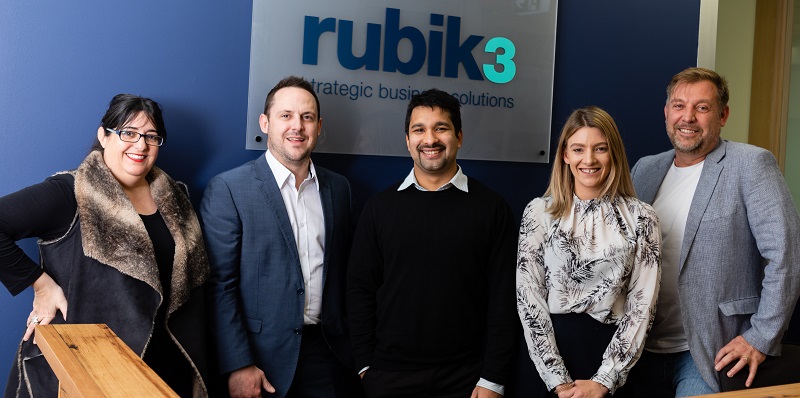
You can’t go wrong with happy staff.
Progressive Canberra businesses are putting the health of their staff front and centre with a wide range of wellness incentives.
Property managers, accounting and bookkeeping specialists and professional service providers are eating nutritious food, signing up for free gym memberships and are working outside of traditional hours to spend more time with their loved ones.
Vantage Strata managing director Chris Miller says the benefits are implicit. “In an industry known for its intensity and stress it is easy to forget to look after your health,” Mr Miller says.
“That has a compounding detriment to quality of work and staff’s lives outside of work. Strata managers have intensity in the volume of work they do, it is a high-energy job, and they need to maintain high levels of energy with the quantum of things going on,” he says.
He has long noticed his own energy levels rise from gym sessions. Now, staff are being offered free gym membership, discounted sessions, discounted health insurance and have an invitation to join Mr Miller for Bikram Yoga, or a group walk up Mt Ainslie.
The health program is voluntary, and staff are getting into new season summer fruits to help avoid snacking on chocolates and biscuits.
Mr Miller, whose brother and father work at Vantage Strata, feels morally compelled to look after the wellbeing of staff at what is fundamentally a family business, which employs 26 full-time and two part-time staff.
“I have professional respect for my colleagues, and genuine bonds of friendship. I don’t want to see people having professional fulfilment at the expense of their personal wellbeing,” Mr Miller says.
Healthier staff convey that positive state to clients. On the other hand, staff resenting their work environment are likely to resent clients too.
Mr Miller says the big dividend from a commitment to staff wellness is longer-term retention of good people. Another key element of Vantage Strata’s wellness program is rostered days off and additional hours of leave to compensate for after-hours work.
“That acknowledges people need time in their lives, to attend to personal needs like, for example, a backlog of ironing or to spend time alone sitting on the couch in your quiet moments,” Mr Miller says.
“The collective – not eating, not exercising, not finding the time for other things that are important, not spending enough time with your family – they all conspire together to create resentment to your work,” he says.
New mothers who thrive on flexible hours of work are the linchpin of Completely Taylored, an accounting and bookkeeping solutions firm in Canberra.
The flexibility starts at the top with founder and director Courtney Milne. In 2016 the arrival of her daughter Taylor, who had some medical issues prevented Mrs Milne from returning to work as planned within 12 months. When she realised she did not want to put Taylor into care after what they had been through, she looked at other options.
Working for clients from home, her accounting skills were so in demand that she needed help, which led her to recruit a former workmate, who was also a mother.
“She jumped at the opportunity not to go back into the workforce and put her child into care,” Mrs Milne says.
Completely Taylored, partially named for what her business provides and a clever play on words to add her daughter and catalyst for beginning the business for her new venture, has 16 clients.
A university student needing flexibility to study, four mothers and a tax agent work for Completely Taylored from home, meeting their deadlines after hours and on weekends.
Gathering for their staff meeting in a park with their children, or a cafe, or childcare, or at Mrs Milne’s home, the team is fulfilling clients’ needs.
Too often, women with university degrees and exceptional skills acquired in the workforce before having their children, find themselves, after the arrival of their babies, in mind-numbing roles, where their full skill set is under-utilised.
“It is hard as a parent not being given an option to use your skills and also be able to be there for your children. Ultimately you want to do both,” Mrs Milne says.
Recognising the need for time to themselves, from the rigorous routines of family life and complexity of a career, Mrs Milne has organised meditation classes, training sessions for goal-setting and activities like hiking up Mt Ainslie for her staff.
Professional services firm Cordelta offers its staff of 70, benefits for gym membership, personal training and sports equipment.
Cordelta senior executive, procurement and contract manager, Rebecca Edwards says incentives include stop-smoking, dietary and weight loss programs, health assessments and massages to relieve stress.
“Our program allows employees to claim 50 per cent of the cost of any health-related expenses across these categories up to a maximum per employee per year of $600,” Ms Edwards says.
“For us, it’s another way to demonstrate to our staff that we care about their health. By taking an active role in encouraging employee health improvement, we also believe we will have a healthier workforce, an enhanced capability, a stronger culture with improved morale on top of a corresponding decrease in absences,” Ms Edwards says.

The team at Rubik3 is dedicated to staff health and welfare. Photo: Daniella Jukic.
Health and family of staff are paramount at professional services firm Rubik3.
“At Rubik we respect the fact that family does have to come first,” says spokeswoman Nadia Pessarossi..
“For example, in the executive team we have a single mother who does school drop off every morning, so we know not to book any meetings until 9:30 am. We have a father who has a new born and a toddler who has the option of working remotely when required. By issuing laptops to all staff, each team member when required can work from home,” she says.
The executive team models its behaviour on what it wants to see in the team. Work lunches and coffees are always thrown in and most importantly, Senior Partner Guy Earnshaw has an open-door policy.
Ms Pessarossi says staff know their wellbeing is a priority, and part of the workplace and team culture.
“By knowing that you can work from home and still take care of a sick child, by working from anywhere in the world via Zoom, by making sure every team member has down time, takes a family holiday and even just has a long weekend,” she says.
Original Article published by John Thistleton on the RiotACT.


What's Your Opinion?